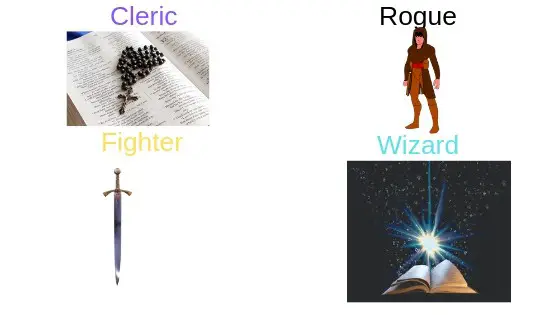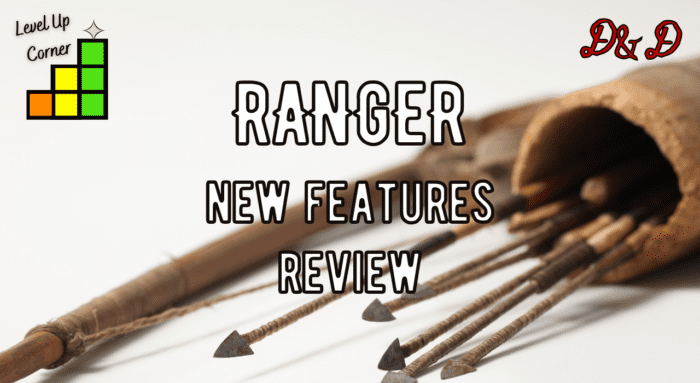There has been a lot of talk on the internet about the concept of having the perfect session 0 D&D guide. So much so that everyone knows what a session 0 is, or do they?
New people join our glorious hobby all the time, and they have to learn new things from scratch. Others have heard of session 0, but don’t exactly know what to do for session 0.
For the perfect session 0 D&D guide you need to figure out meeting time, the place, table rules, the game, answer hard questions, and more.
There are a few more steps, but those are the primary ones. Now let’s get into it!
What is session 0?
The perfect session 0 D&D guide involves you covering all the basics of the game, and preemptively take care of any and all possible issues. That sounds like a mouthful, and it is. There are some issues with this definition since we cannot prevent every issue, but we can most definitely try.
In a session 0 you cover basic campaign guidelines that seem standard all the way to personal concerns for harder topics. We will go into detail for each thing you need to cover, but you must also figure out one very important thing that no one considers fully….
1. Time

Is your meeting weekly, bi-monthly, or once a month? How often will you all meet? This is something that you need to figure out. Once you have this figured out, you must pick a day and time. After you have done that, you have to commit to it and actually play on those days.
Sometimes you will have to cancel based on real-life issues but discuss those now. Will holidays stop you guys from playing? How many people have to be there to play? If you have a group of 5 people and you state that you will all play as long as three people show up, but not if four or more can’t make it then you stick to it.
Is the time around dinner? If you guys are playing before or around dinner, how will you all eat? Will there be a money pool for pizza or dinner? Is it the host’s job? Here you have to figure out what happens or one person will bring food, stop bringing food, and then everyone will be hungry or mad.
2. Place
Where will you play? In your mother’s basement? Will you all play online or at a specific location? What happens to you when a person cannot make it to the sessions in person but still wants to play? Will you video chat them in so that they can play? Will this interfere with the rule you set forth before for canceling?
You all need to set where you will play and how you will play. You will also need to account for other factors. Will there be children there? If so will everyone have to conscientious of curse words or will this not be a problem?
Can I drink?!?!?! This is a concern for some groups over twenty-one. Some people want to play Dungeons and Dragons while drinking, and others are fine not to. Whatever you do is fine, but this brings up another point.
3. What is allowed
Some people do not like having their group drink and play Dungeons and Dragons. I used to be perfectly fine with this, but as a dungeon master, I have seen games ruined because of alcohol. People in my experience destroy other character’s plans, act poorly in combat, or just do something that only a drunk person would do. This can destroy the story plot, and everything else even more than
This is my personal take on drinking, but perhaps you have a different experience. How you run your table is up to you, but you need to say what is or is not allowed.
Some basic things like disrespecting players shouldn’t need to be talked about, but we don’t know what will cross the line. That is why later we will discuss how to bring up hard topics and see what others find acceptable.
4. The game
You should let your players know a little about what the campaign is going to be like. Will the campaign be a module or homebrew? Will you be doing a linear or open-world sandbox game? Any of these are fine, but your players should know so that they can make characters and act accordingly. There is nothing more frustrating than wanting to do a linear game, but your players keep going ‘oh shiny’ and follow anything non-plot related.
What is the setting? Will this game be combat hack and slash heavy? Will it involve a lot of role-playing and little to no combat? If your game is going to be in an urban area, let the players know so that they don’t end up making a druid or ranger expecting to use their vast nature skills.
Conversely, let the players know if the game will be in a wilderness setting. This may discourage rogues since they are more urban, but always be willing to work with a player if they want to play that class in the nonoptimal environment. Just make sure the player understands the setting and the implications it brings for them.
Lastly, will the game be a milestone or experience based game to level? How will different actions affect the game overall? If you are doing experience how much does role play give the player? If it is a low amount, be ready for a kill first ask questions never game. However, if you have a specific way to level like the players need a trainer or time to reflect upon their experiences make sure they know.
5. Table rules
Will there be house rules? If so what are the exact house rules? How will you handle rules disputes? Will the dungeon master have final say always, or can the players debate the dungeon master? If the players can debate the dungeon master, how will that be handled? Can they interrupt when there is an issue or tell the dungeon master and then discuss it after the session?
How will you handle player death?
Conversely, how will you not make the players feel like this game is a dictatorship when the dungeon master has the final and only say?
Is it okay to backstab other players? How often will player death happen, and what can cause it? I, for example, do not let my players die to random strings of critical roles, but I do let them die if the root cause can be traced back to decisions and actions made by players.
What about phones and other distractions? How will you handle these issues? Additionally, how will you handle it when a player is distracting another player?
What about other unforeseen issues like dice rolling? Will you force players to roll in the open or trust them?
I am throwing a lot of questions at you, but you need to answer these questions and tell your players.
6. Hard topics

These are the questions that no one asks, but can destroy a group if you assume wrongly what the players are okay with. Covering these topics is essential for the perfect session 0 D&D guide in order to avoid potentially campaign imploding issues later on.
Are your players okay with rape? A big question I know, but some games involve rape, sex, and brothels. Is everyone comfortable with the topic? If so how comfortable/far are you going to go? If not how far will you go when glossing over the scene, but still making them understand what is going on? Should you phase out rape entirely? This is a hard topic that stems from reality, and some groups tackle these issues. Just make sure your group is fine with them if you want to do so.
What about racism? Racism is in almost all fantasy and a lot of real-life novels, but are you okay being in that environment? It can be sort of funny like how an elf can just joke and mock a dwarf while the relationship is the same both ways.
Racism can also extend to a race like tieflings only being allowed to slaves since they are seen as lesser beings. Can your players handle this, or not? Will the players turn to help the tieflings or falling in with the others and abusing them?
Gore
What about gore? Do players get queasy when you describe how the dagger went into the spleen making a popping sound like the victim gasping for air, clawing with their hands trying to live as they see with wide-eyed horror that their life is leaving them? How about the crunch of bones when a rock hits a person destroying their ribs causing a rib to stick out from their chest as you vividly describe the scene?
What about torture? Some games do involve torture, but again how far will you describe the gore? Will you say ‘you see human body parts detached and a beaten man tied to a pole. You know he was tortured.’ Or will you say ‘you see a man who now has only four fingers, and the nails are peeled off the remaining four. He has been flayed numerous times on his back and flanks of flesh are carved out of his thighs.’ etc.
These descriptions can become even more vivid, but you should know what you as a dungeon master are fine with, and find out what your players are okay with before you start playing.
Nothing is worse than starting a game, finding a good group, and having that group fall apart because others feel appalled at what is happening.
7. Making characters
By now they know the game, what to expect, and can make a character. Yay for no more depressing topics!
But we are not done with what we need to cover? Well, we are done with the depressing topics, but we still need to cover how players will create their characters. Are any races off-limits? If so why and can a player work with you to make that race happen?
This is something that many DMs forget. Don’t forget this step or the perfect session 0 D&D guide will fall apart. You will oftentimes forget these questions, so write them out and don’t forget to address them!
Are your society and world a low magic setting making magic hard to come by? If so can a player still play a wizard even if it will be difficult?
How will you roll stats? 3d6 in order (hardcore!), 3d6 chose stats, 3d6 with one free 18, 4d6 drop the lowest, 4d6 reroll ones and drop the lowest?
You have to figure out how this is going to happen, and if the players are fine with it (3d6 in order is a bit harsh and not for everyone) or how your game is going to be because of these stats. 4d6 drop the lowest and reroll ones means the enemies they face will be more powerful than a 3d6 in order game.
What books are allowed? Just the basic books, or every book? Will you allow homemade classes, view them on a case by case basis, or say no? Cover all your bases here.
8. The party

Now that the characters are made, how will you start the game? Does everyone know each other? If so how do they know each other?
Does the party only have a few pairs that know each other? If so how will you get them all into one spot and why would they form a group?
Does no one know anyone? If so how will you get these random misfits to form a party? Will you make a table rule that everyone knows and they should just go along with it? Does each character have the desire to be an adventurer?
Can people be evil? How will backstabbing each other work? Is there no in-party fighting? What are the limits?
Make sure that these questions are answered and given to the players.
9. Out of table session 0s and playing the game in session 0.
Sometimes we do all of this outside of the table. We do this over email, text, or the like and need to make sure everyone is on the same page. If you do this, make a group conversation and tell everyone. This way, if you tell someone something there will not be a ‘oh that’s right I forgot to tell you’ conversation.
If you hold your DnD session 0 over online connections and have the players make their characters beforehand that is fine, just make sure you have a session 0.
Do not expect to play a game when you have your session 0, but have a small scenario ready. If you made characters away from the table, you should have answered all these questions in a group conversation. If you have not, do this before you start playing.
Do not rush session 0 to get into the campaign. The perfect session 0 D&D guide foundation is extremely important to have or these questions will come up and play will be hampered.
10. Covering your bases
We cannot be perfect or cover everything, so we have to be ready for when we screw up. If a player doesn’t like a rule, they can talk to you out of game right? Or did you say in-game? Either way, this sets a precedent for how players should respond when you do something they do not like.
Ask your players
You have to be ready to answer any and all questions that the players have as well. This is not just a one-sided monologue, and players have their own questions. They may ask what they know of the world already, and you have to give them that information.
Lastly, ask if there is anything else that the players wish to know just so that you all are clear. You have given them a lot to think about, but they may still have more questions. Answer them, and you will all hopefully have an amazing game!
Conclusion
The perfect session 0 D&D guide is an important time for any campaign. If this session is not held or the information is not conveyed beforehand, your group can be destroyed.
I wish I was exaggerating, but I am not. This will stop character killing, hard topics from destroying groups, and players from feeling like they have no idea what is going on. Never just jump into a game, always be prepared.
This has been Wizo and keep rolling!




